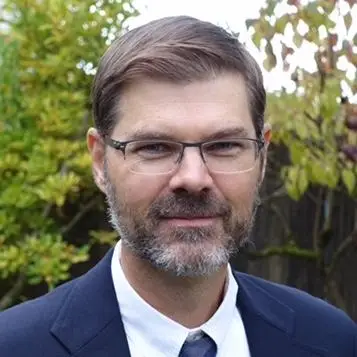
Michael DeArmond is a former principal at the Center on Reinventing Public Education. His research looks at educational governance, bureaucratic reform, and policy implementation. In addition to policy reports, his research has been published in academic journals, including Education Finance and Policy, Education Administration Quarterly, and Journal of Education Finance, as well as in edited volumes from the Brookings Institution Press, the Urban Institute Press, and Harvard Education Press.
Dr. DeArmond has a PhD in education and an M.P.A. in social policy and education, both from the University of Washington, and a B.A. in history from Brown University. Prior to working as an education researcher, he was a middle school history teacher.
This report complements our latest fall 2021 survey research from the American School District Panel with in-depth interviews of leaders on the ground in five school systems.
The American School District Panel surveyed school districts nationwide to better understand their staffing challenges in the pandemic’s third school year.
As stress and disruption have intensified for students over the past two years due to the pandemic, so has interest in and spending on social-emotional learning (SEL) in public education.
As the new school year approaches, big-city superintendents everywhere confront the chasm between their students’ needs and their districts’ capacity to meet them.
Last winter we interviewed 29 school leaders about lost learning time over the last year and a half, and they were nearly unanimous on one point: rather than diverting struggling students to remedial tracks, they hoped to push forward with teaching grade-level content and skills across the board.
Fifty-six percent of students say they are more stressed about school than before the pandemic. Eighty-three percent report a physical symptom of stress—like difficulty sleeping, headaches, and weight gain or loss.
This report describes the implementation of RESCHOOL Colorado’s Learner Advocate Network between 2018 and 2019 and what it implies for expanding similar efforts elsewhere.
The uneven and, in some cases, slow-moving efforts to support student learning during the COVID-19 pandemic have raised new questions about whether school districts are prepared to respond to a fast-moving crisis.
The report examines the Texas Education Agency’s System of Great Schools (SGS) initiative, which calls on districts to manage school performance in new ways, expands access to school choice options, and takes a dynamic approach to managing their supply of schools.
Re:portfolio is a monthly publication of articles, news clips, and resources about the portfolio strategy for civic and education leaders. This post comes from the second edition, in which we discuss outside-in approaches for reform.
This report is the first step in developing an evidence base about how charter schools meet the needs of unique learners, how they can improve in this work, and what aspects of chartering as a governance model support or impede their ability to do so.
This brief provides an initial, formative assessment of lessons learned in the first year of ReSchool Colorado’s initiatives to expand access to out-of-school learning opportunities for children in the Denver area.
The portents of market failure—things like inadequate information and a lack of competition—are everywhere in public education. So, when it comes to school choice, government has an important role to play: reducing information asymmetries, bolstering accountability, and ensuring fairness.
This is the seventh installment in our series of “Notes From the Field” on personalized learning. “There are so many digital resources out there, I am lost as to which ones are good.I usually try things that some of the more technology-knowledgeable people I teach with [use].”From “Teachers Know Best,” Bill & Melinda Gates Foundation, 2015, page 21 Teachers in the personalized learning (PL) schools we visit are using a wide range of digital tools—sometimes picking up and dropping them at a rapid clip—but their decisions about which tools to use generally aren’t guided by systematic evidence.
After more than two decades of state supervision, Newark’s public schools are slated to return to local control. When the state hands the keys back to the city, local leaders will inherit a district that’s in a fundamentally different position than it was in 1995, the year the state took over.
This is the third in our series of “Notes From the Field” on personalized learning. Over the course of this project we’ve heard a lot from schools about what personalized learning (PL) means for teachers and classrooms, but less about what it means for principals—and that is worrisome.
This is the second in our series of “Notes From the Field” on personalized learning. Twenty-five years ago, I was a young history teacher soaking up progressive teaching methods that aimed to foster deep, personalized learning for my students.
This blog was originally published in Fordham’s Flypaper. At CRPE, we believe strongly in taking a city-wide view of education. The reality of urban education these days is a complicated mash-up of schools run by districts, charter providers, independent private schools, and sometimes even state agencies.
This blog was first published in the Brookings Brown Center Chalkboard. In a recent report, we looked at how public education is delivering on the promise of educational opportunity in 50 mid- to large-sized cities in the United States.